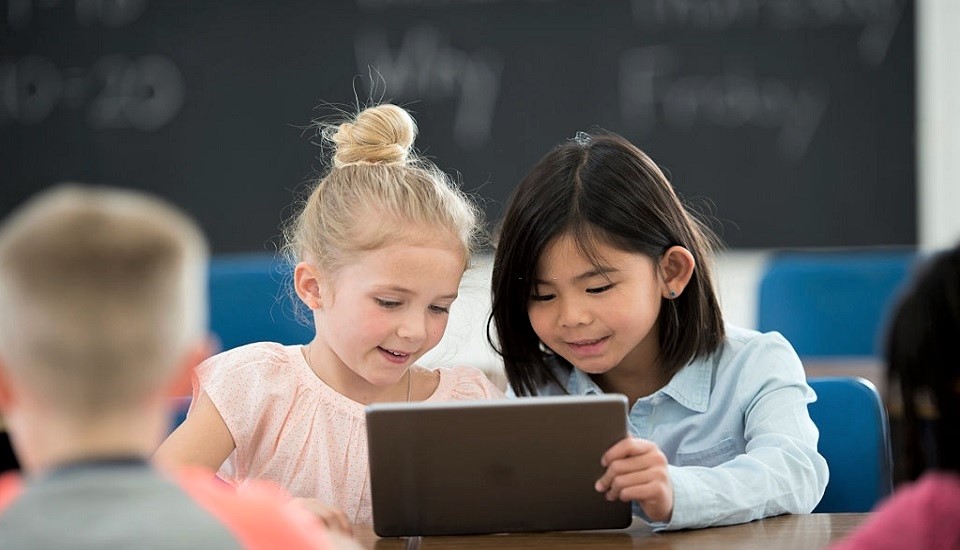Hacks To Comfort The Digital Play Schoolers In A Post-Pandemic Classroom
25th September 2021

Early years care and education programs; popularly known as ECCE programs have tremendously become a much sought-after qualification. Early years care and education in Malaysia has seen a lot of fresh applicants of aspiring teachers in this field since last year. The reasons are justified and it and ECCE teaching are now becoming a lucrative job to explore.
COVID-19 forced the world to act virtually in every aspect of social contact. Work, studies, socialising, meetings, etc all came under the digital rule. With the restrictions becoming a norm, it influenced lives at every age and stage. Here we would look at the younger kids who stepped into their academic journey right on the face of the pandemic. This increased the demand in recruiting new-age or newly qualified teachers who are adept in using digital tools to educate the children
The children who started their schools online last year have little or no knowledge of the regular existence or the physical process of being in the school. They see their friends in virtual classrooms as well as their teachers. In such a case, they are now quite comfortable in this so-called arrangement. This is quite concerning since a lot of social and emotional balance and development happens in this stage.
Thankfully or not the scenario is quite under control and in a few countries, people have already started with the revival of the in-class setting. This is in a way going to be a new thing for these learners and they need to adapt to this change. As ECCE teacher, one must anticipate the problems that might arise and keep the necessary mindset and support ready.
A few ways to alleviate the feeling of the newness of going to school can be:
1. Developing memory skills through activities.
These activities can be both interpersonal and intrapersonal. Any multidirectional game or task would help them to rewind and come back at the moment through repetition of instructions. This would help to take them out of the digital or automated feel of doing any activity. Call it the “big brain time” where they need to use their cognitive skills to understand and fulfil the requirements of a task.
For example, write a journal where they can also draw. Topics like family, pet, etc makes them look closely into the instances of their lives which is not present in the moment. Also, examples like story-telling and retelling of their favourite parts of the story by letting them take the lead. Beginning the class with a non-linguistic energizer where the instructions are given to them a few times before they have to do it on their own proves beneficial.
2. Building flexibility in cognition
A set patterned structure of classes with limited options to explore around may not sound such a good idea for these children who are going to experience a live classroom atmosphere for the first time. Enough tweaks should be brought in to provide them flexibility in thinking critically.
The 21st-century tools of communication, collaboration, critical thinking and creativity should be made known to them. In each set of activities planned for them at least two of these should be implemented for a better social and emotional learning. Only then, education can be made hands-on and the children would shake off the strange feeling of studying in a classroom setting.
Activities that encourage divergent thinking should be considered. For example, while the teacher takes them on a nature walk, the children should be provoked to find any random object from the surrounding like a stick or twig and ask them to think over the use of the same. At the same time ask provoking questions like how an alternative of the stick or the twig can be found useful for a doctor, a farmer, for themselves, etc.
Roleplays are extremely effective and helps to build empathy and perspective. Thematic simulation of the classroom to give the learners a feel of the habitat or the situation should also be considered. Bringing a random change of rules in the class. For example, Wear Your Clothes Inside Out Day, Bring the Bottle of Water for Your Friend Day, etc. This encourages them to subconsciously become more open-minded to new ideas.
3. Self-regulation practice
COVID-19 restrictions made the children start their school years at home. So, a lot of habits and manners got cornered in the process. Self-regulation is something that should be ideally modelled by a parent/facilitator/care-giver so that they understand the importance of controlling their actions.
Standing in queues and taking turns for doing any activity or practical life tasks should be implemented in the classroom settings. This would help them to understand the foundation of respect. At the same time make the students acquire enough knowledge and becoming familiar with the emotions. Make them familiar with gestures and expressions of themselves and their friends.
With these pointers in your new checklist for post-pandemic classrooms, you would be all set to bring back the original normalcy in classroom learning. A lot of self-talk should be encouraged. Teach them words of motivation and add an action with that. For example, “I am the best” or “Yes, I can do it” with a fist in the air, etc. This brings an immediate spark to cut the anticipated frustration among the learners.
In the end, remember that you are only a facilitator with Early Years Care and Education Program when you can embrace change, learn from your weaknesses and be mindful to practice reflections on every action of yours that may make or break the future of the new generation.
Written By : Katharina





